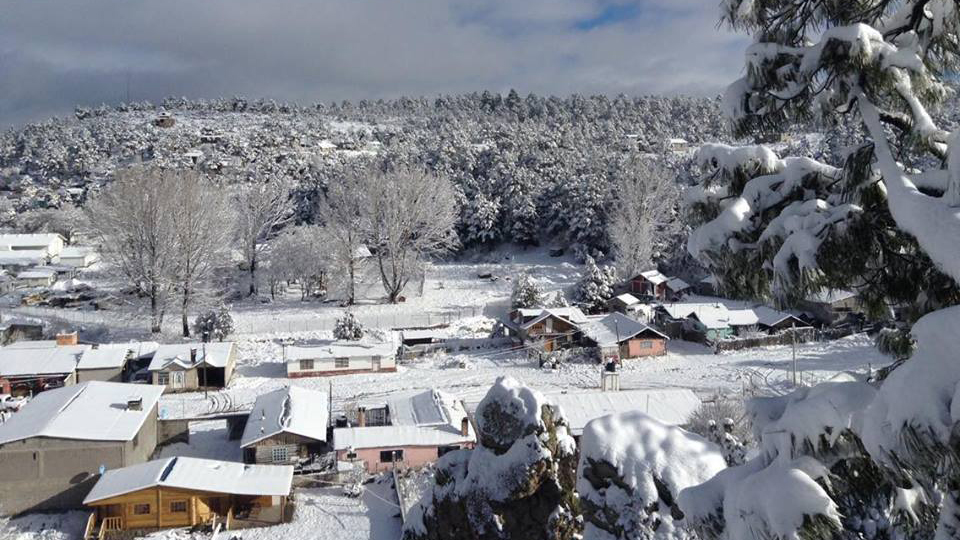WELCOMING A NEW PARTNER: CO2SCIENCE
We are big admirers of CO2Science.org, which for many years has been sifting through the scientific literature and posting summaries of important articles on a wide variety of climate-related topics, with a special focus on biological effects of CO2 levels on plants. With their kind permission we are going to begin sharing with CDN readers some of their work here in our Science Items section. This week we start with two of their recent postings.
Analysis of data from 15 major Chinese cities reveals the mortality attributable due to cold weather is nine times greater than that due to warm weather...
Paper Reviewed by CO2Science:
Zhang, Y., Wang, S., Zhang, X., Hu, Q. and Zheng, C. 2020. Association between moderately cold temperature and mortality in China. Environmental Science and Pollution Research doi.org/10.1007/s11356-020-08960-5.
Climate alarmists predict global warming will increase human death rates, and nary a heat wave occurs but what they are quick to blame any concurrent excess deaths on the high temperatures associated with it.
Much more deadly than hot weather, however, is cold weather; yet climate alarmists typically ignore the excess deaths that are caused by low temperatures, even though they are far more numerous than those caused by high temperatures. Indeed, numerous studies detailing this fact -- that extreme cold kills far more persons than extreme heat -- can be found by perusing the many reviews of the topic we [CO2Science] have posted in our Subject Index under the subheadings of Health Effects of Temperature: Hot vs Cold Weather. The present review details the latest work to confirm this fact, as reported by Zhang et al. (2020) for 15 Chinese cities using data from 2010-2016.
To conduct their analysis the five Chinese researchers utilized daily mortality and meteorological data from the capital cities of 12 provinces (Harbin, Changchun, Shenyang, Urumqi, Shijiazhuang, Xining, Lanzhou, Nanjing, Hefei, Chengdu, Kunming, and Guangzhou) and three municipalities (Beijing, Tianjin, and Shanghai).
[The] data suggest human adaptation and preference for temperatures on the warm side of the observed temperature spectrum. More importantly, however, are the calculations of attributable mortality fractions (AMF). Here, Zhang et al. report that “over all the cities, the total attributable fraction of mortality caused by non-optimum temperature, including both cold and heat, was 12.65%,” varying from 7.03% in Kunming to 21.07% in Xining. But, the vast majority of those deaths (approximately 90%) were attributed to cold weather (the mean AMF for all cities due to cold weather was 11.38%, whereas it was only 1.27% for hot weather).
Thus, given the above, it is clear that cold weather is far more deadly (AMF value is nine times greater in this study) and of much greater concern to human health than warm weather.



Readers might be interested in two related historical analyses on this subject:
"Climate change, social unrest and dynastic transition in ancient China", Zhang Dian et al., Chinese Science Bulletin 2005, Vol. 50 No. 2, pp.137—144:
"Results showed that war frequency in cold phases was much higher than that in mild phases. Besides, 70%—80% of war peaks and most of the dynastic transitions and nationwide social unrests in China took place in cold phases."
A similar paper analysed European conflict in the same terms:
"Climate change and violent conflict in Europe over the last millennium", Richard Tol & Sebastian Wagner, Working Paper FNU-154, Jan 15, 2008:
"We investigate the relationship between a thousand-year history of violent conflict in Europe and various reconstructions of temperature and precipitation. We find that conflict was more intense during colder periods."
I think that, just like there is an absolute zero (where it can't get any colder), but no maximum temperature, when it comes to human comfort there is a limit to how much clothing one can shed to keep cool - once naked, there is no more one can do to keep cool, apart from getting wet
- whereas cold weather can be countered by wearing more and warmer clothes, and staying indoors burning fossil fuels. Ergo it is easier, and cheaper, to stay warm than to keep cool...just sayin'...
And producing food in the cold?